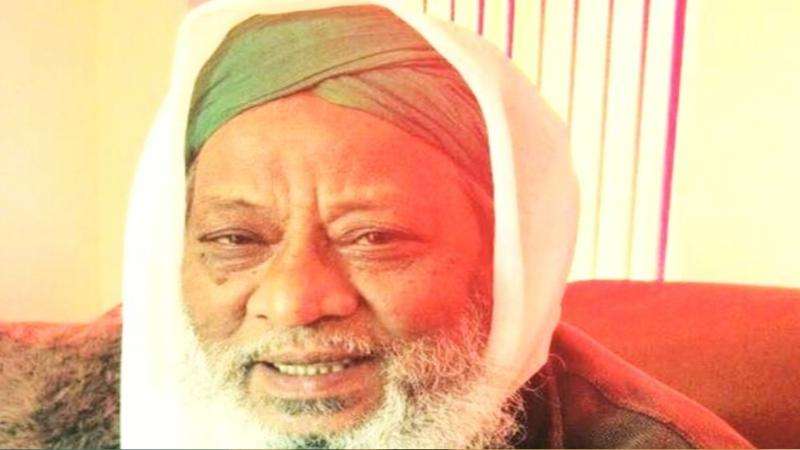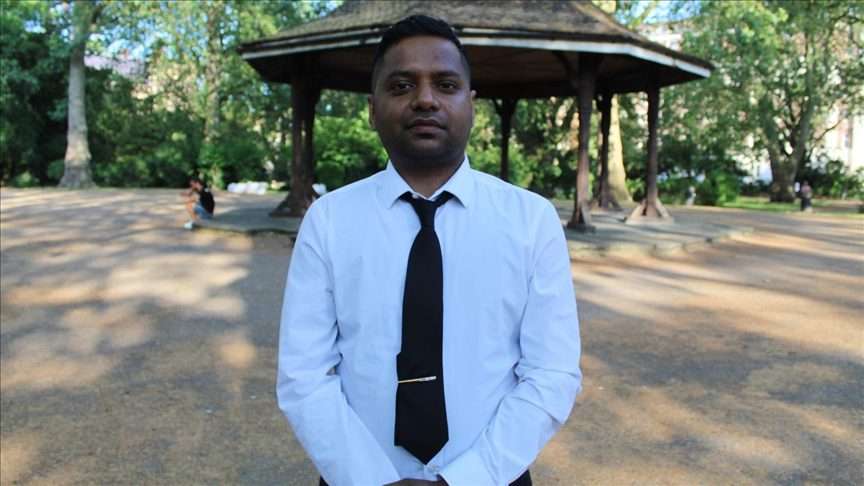Mominul Hamid, a 30-year-old citizen of Bangladesh, has overcome several challenges in his life.
His ex-in-laws compelled him to work at their restaurant for free after trafficking him first to France and then to the UK.
“I was confined for around six months before I was rescued,” Hamid, now a prominent community activist, told Anadolu.
Due of his ordeal and the abuses he encountered, Hamid decided to seek a legal education.
Hamid, who currently resides in Newcastle, is pursuing his goal of becoming a lawyer by enrolling in Northumbria University's law program on a scholarship.
“My mum was a head teacher at a school back in Bangladesh, and she told me the one thing that can lift you up is education.
These are the things which nobody can take away from you,” he said.
Despite his accomplishments, Hamid still confronts a significant barrier in his life in the UK because his asylum application has been pending for more than five years. This story is an indictment of Britain's laborious and complicated asylum process.
The focus is firmly on the nation's policies on migration and asylum seekers as World Refugee Day is observed on June 20 and Refugee Week is observed in the UK this week.
The Rwanda Plan and the Illegal Migration Bill, two recent ideas on the subject that have garnered vehement condemnation from groups that support human rights and refugees, contend that they are illegal under international law and the UK's duties under the Refugee Convention.
The UK’s policies on tackling irregular migration have also been widely criticized for “scapegoating migrants,” but the government remains adamant that they are the need of the hour.
‘All for my son’
By Hamid’s own admission, his story is “a bit strange.”
In 2017, he wed his British-born wife in Portugal before she relocated to the UK and gave birth to their son.
Hamid claimed that his ex-in-laws took advantage of his need and desperation to see his son.
He was turned over to a group of traffickers after they forced him to travel to France illegally. He stayed there for a while before being smuggled into the UK, where his in-laws took all of his money and paperwork.
“You may ask: ‘Why did you take this horrible journey?’ Because my son was born here, he is British and after he was born, I hadn’t seen him,” said Hamid.
“And I didn’t have any way to come and see him other than taking this journey, which was arranged by my ex-father-in-law.”
He was ultimately saved by police and helped by a nonprofit that fights human trafficking.
He applied to university in 2018 and was offered a scholarship; however, due to the Home Office's "study ban" on asylum seekers, he was unable to enroll.
He successfully appealed the judgment, but by that point he had already lost his scholarship.
Hamid's legal problems continued after that, though, when the police halted an inquiry into his ex-in-laws.
“That was an injustice in my point of view. It was so unjust that I felt that I should study law, and in the future, I will help people like me,” he said.
Community activism
In addition to his studies, Hamid is a renowned community activist who collaborates with numerous groups on numerous social welfare programs.
He has notably worked on initiatives to increase public understanding of the effects that laws like the Rwanda Plan and the Illegal Migration Bill will have on immigrants and asylum seekers.
“As a person with a lived experience … I think it’s really devastating,” he said.
About his own asylum claim, he said more delays are likely because of the “huge backlog” of cases.
“Bearing in mind that I’ve got a British child here, you can see how the system is literally broken. It has to be resolved. A lot of people are waiting for nothing,” said Hamid.
“I have so many restrictions. I can’t work, I can’t do other stuff that any normal person can do. I would say that ending the backlog and talking to people like me to create new refugee-friendly legislation will be much better for this country going forward.”








.svg)

